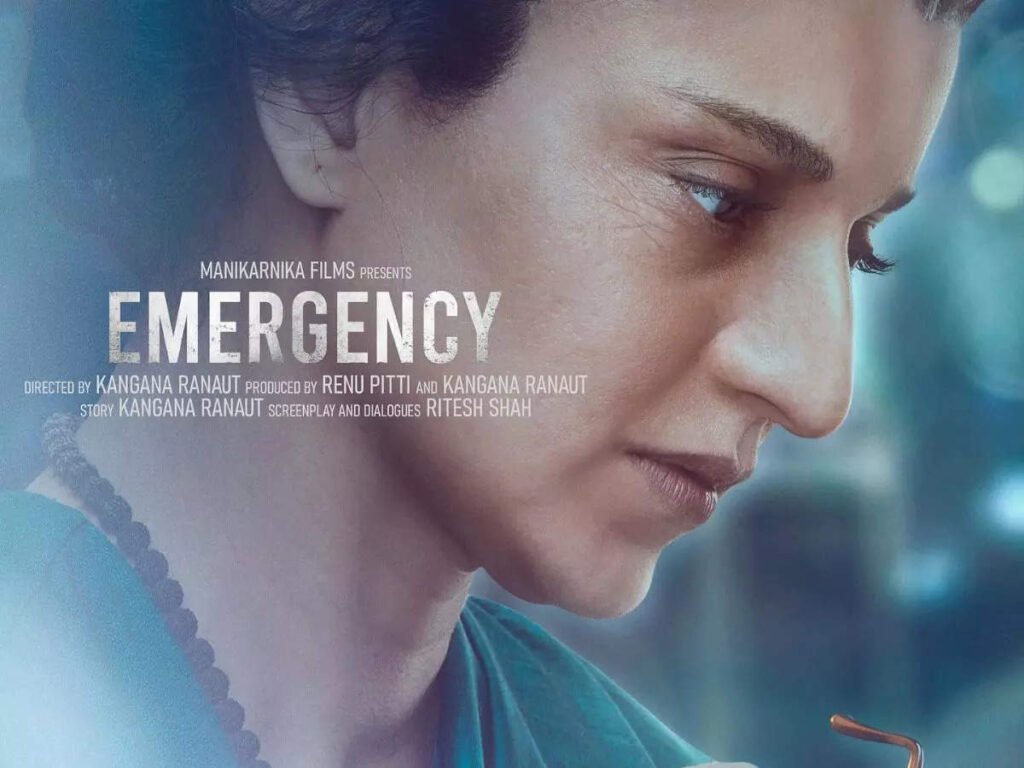On Wednesday, the makers of Kangana Ranaut’s movie ‘Emergency‘ went to the Bombay High Court to get the film released and obtain a censor certificate.

On Wednesday, Zee Entertainment Enterprises, co-producer of Emergency, asked the Bombay High Court to help release the film and issue a censor certificate. The petition claims that the censor board is unfairly withholding the certificate, even though it’s ready. The court will hear the case later today.
The film, starring Kangana Ranaut as former Prime Minister Indira Gandhi, was set to release on September 6. It faces controversy from Sikh groups, including Shiromani Akali Dal, who say it misrepresents their community and has historical errors.
About kangana ranaut cast of Emergancy
Emergency is a compelling biographical drama film directed and produced by Kangana Ranaut, who also stars in the movie as former Indian Prime Minister Indira Gandhi. This film delves into a critical and turbulent period in Indian history—the Emergency period declared by Gandhi in 1975. This era was marked by political turmoil and controversy, and the film aims to explore the multifaceted nature of these events through a detailed and dramatic portrayal.
The Emergency was a significant political event in India, lasting from June 25, 1975, to March 21, 1977. During this time, Gandhi declared a state of emergency across the country, citing internal disturbances and threats to national security. This decision led to the suspension of civil liberties, the arrest of political opponents, and significant restrictions on the press. The period remains one of the most controversial and debated chapters in modern Indian history.
In Emergency, Ranaut portrays Indira Gandhi, one of India’s most influential and controversial leaders. The film aims to provide an in-depth look at the socio-political landscape of the time, shedding light on Gandhi’s decisions and their far-reaching consequences. By focusing on this critical period, the film seeks to present a nuanced portrayal of Gandhi’s leadership and the impact of her policies on the nation.
Kangana Ranaut’s performance as Indira Gandhi is highly anticipated. Known for her versatility and strong acting skills, Ranaut’s portrayal is expected to capture the complexities of Gandhi’s character and the intricate nature of the historical events. The film strives to offer a balanced view of Gandhi’s role during the Emergency, exploring both her motivations and the criticisms leveled against her.
However, Emergency has stirred considerable public and political debate even before its release. Some critics and Sikh organizations, including Shiromani Akali Dal, have raised concerns about the film’s historical accuracy and its portrayal of sensitive issues. These groups argue that the film may misrepresent the events and figures involved, particularly regarding the depiction of Sikh community issues during the Emergency period. This controversy highlights the challenges of portraying historical events accurately while addressing the diverse perspectives of those affected.
The film’s release has been accompanied by a broader discussion about its potential impact on historical memory and public perception. By addressing a complex and sensitive period in Indian history, Emergency faces the dual challenge of engaging audiences while navigating the potential for controversy. The film’s handling of historical facts, character portrayals, and political implications will likely be scrutinized by both critics and the public.
Despite the controversies, Emergency represents a bold attempt by Kangana Ranaut to tackle significant and complex topics through cinema. The film’s exploration of the Emergency period provides an opportunity to reflect on a pivotal time in Indian history, offering insights into the political dynamics and societal impacts of that era. Through her directorial and acting efforts, Ranaut aims to contribute to the ongoing discourse about this critical period in India’s past.
In summary, Emergency is more than just a biographical drama; it is a cinematic endeavor to revisit and interpret a controversial chapter in Indian history. Kangana Ranaut’s involvement in the film, both behind and in front of the camera, underscores her commitment to addressing challenging historical subjects. As the film continues to generate discussion and debate, it stands as a testament to the power of cinema to engage with historical narratives and provoke thoughtful examination of the past.




